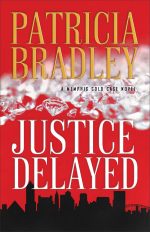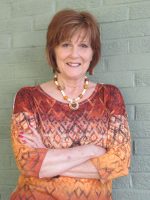By Patricia Bradley
Do writers ever “arrive”? You know, get to the point where they quit learning? Or studying the craft? Not if we want to be good writers, we don’t. And now is one of the best times in the history of writing to get help if you’re just starting out or to hone your craft if you’ve been writing a while.
I think back to when I first started writing. I lived in a small town and still do. But at that time there was no Internet, or at least none available to me. I didn’t even have a computer. I had a portable Royal typewriter. Did I mention it was a manual?
I also had Writer’s Digest Magazine and a couple of books on writing. And I was a reader. That was it. But what little I had was enough to get my first works published in Woman’s World. Short little mini-mysteries. It wasn’t enough to write a good novel, though. That came many years later after studying with master authors.

Of course, I kept making the same mistakes over and over in the beginning because I had no critique partners, no teachers, no one to show me the mistakes I was making. Things like show, don’t tell, RUE–resist the urge to explain, don’t head hop, or open in the middle of a problem, not with what your character had for breakfast…unless said breakfast killed her.
Now it’s much different. There are critique partners available, on-line if there’s no one in your area to connect with. And there are so many writing books and on-line courses, not to mention the workshops at ACFW and other conferences. To name a few I’ve used:
• James Scott Bell’s ANYTHING. I particularly like Super Structure.
• Randy Ingermanson’s blog. There is so much free stuff on his blog to help writers. I also like his last craft book, How to Write a Novel Using the Snowflake Method.
• Susan May Warren’s courses. Her Deep Thinker Retreat is where I learned how to write. She has many more courses now at her website.
• ACFW on-line courses – this is one of the best free courses around (except for the price of membership, but you get so much for the small cost). Every month excellent teachers provide instruction in different subjects on writing from plotting to dialog to characterization to marketing, and so on. If you’re a member of ACFW this is an awesome opportunity to hone your craft.
• The workshops at ACFW and other conferences. There are workshops for everyone here, no matter what your level of writing.
• Alicia Rasley’s blog and on-line courses. While not a CBA writer, her advice to writers is spot-on. She’ll soon be teaching a free on-line writing course. To get it, sign up for her newsletter at her blog. I’ve been taking one of her courses on writing emotion and it has helped me so much. One thing I’ve learned is if the character cries, then the reader doesn’t need to. Never considered that.
These are just a few of the resources available. And how about you? What workshop or book made a difference in your writing?
 Winner of the 2016 Inspirational Readers’ Choice Award in Suspense, Patricia Bradley lives in North Mississippi and loves to write suspense with a twist of romance. Her Logan Point series is available at all major bookstores. Her latest book is Justice Delayed, a Memphis Cold Case Novel. She loves connecting with readers on her blog every Tuesday where she has a Mystery Question for them to solve. You can also find Pat on Twitter: @ptbradley1, FaceBook, and Pinterest.
Winner of the 2016 Inspirational Readers’ Choice Award in Suspense, Patricia Bradley lives in North Mississippi and loves to write suspense with a twist of romance. Her Logan Point series is available at all major bookstores. Her latest book is Justice Delayed, a Memphis Cold Case Novel. She loves connecting with readers on her blog every Tuesday where she has a Mystery Question for them to solve. You can also find Pat on Twitter: @ptbradley1, FaceBook, and Pinterest.

Comments 0
Patricia, great list, and I agree with your choices. The book by James Scott Bell on Plot and Structure was one of the first I read, and it opened my eyes to a lot of what we should do to craft a story that holds the attention of the reader.
Thanks for sharing.
I so agree, Richard! And I reread it before I start each book. lol. Seems like I sit down at the computer to start a book and think, Now, how do I do this?
I am writing my first novel. I truly appreciate writing workshops and the wisdom of other authors.